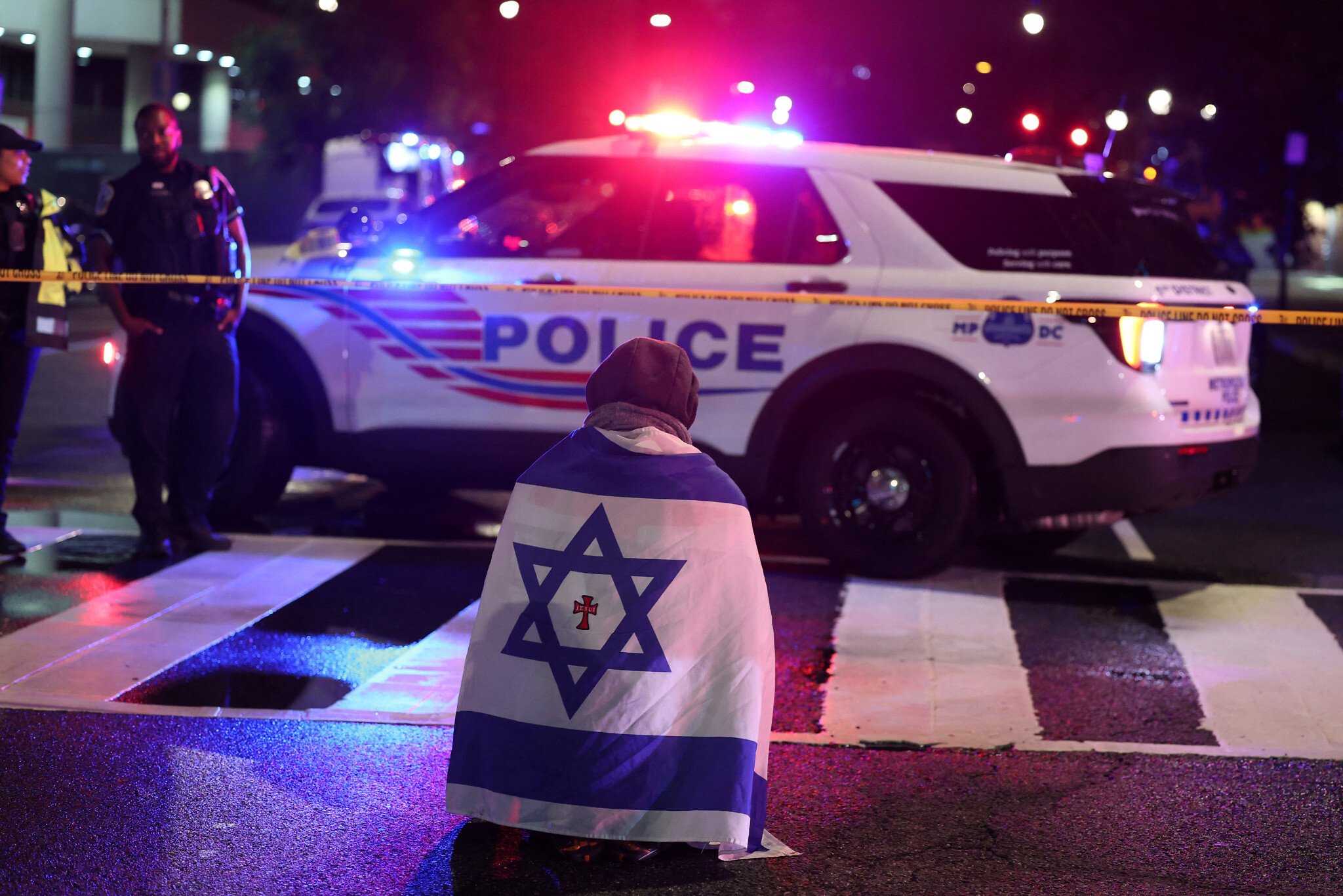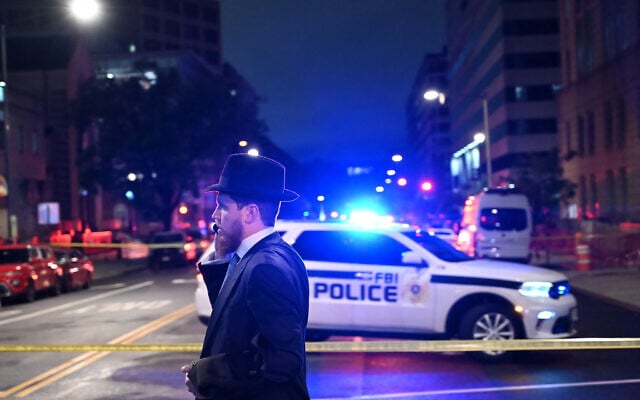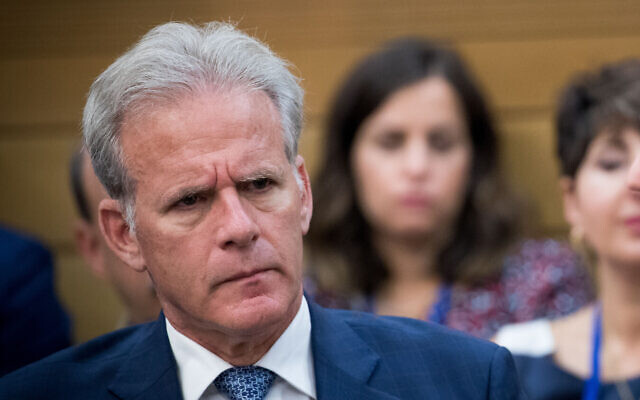



When Jerusalem resident Ziv Halsband woke up to news that two staff members of the Israeli Embassy in Washington had been shot dead, the software developer came to a disturbing conclusion: Jews were not safe anywhere.
“We hope that [US President Donald] Trump will continue to help us and protect us all, especially in the States. And we want to be sure that we can go all over the world with confidence,” said Halsband, a tank officer during the Gaza war who was seriously wounded.
The Israeli embassy staffers, a young couple about to be engaged, were killed by a lone gunman in Washington, DC, on Wednesday night as they left an event at the Capital Jewish Museum about 1.3 miles (2 kilometers) from the White House.
The single suspect, identified as 31-year-old Elias Rodriguez from Chicago, chanted “Free Palestine” after being taken into custody, according to documents filed Thursday charging him with first-degree murder.
Foreign Minister Gideon Saar accused unnamed European officials on Thursday of “toxic antisemitic incitement” that he blamed for a hostile climate in which the Washington killings took place.
Felix Klein, the German government’s commissioner for fighting antisemitism, said there was reason to fear the Washington shooting could inspire copycats “even on our own streets.”
Israel’s National Security Council regularly issues warnings to Israelis traveling abroad to keep a low profile and avoid publicly identifying as Israelis or Jews. It issued such a warning ahead of the Eurovision last week in Basel, Switzerland, saying there could be friction with anti-Israel protesters. Ahead of Passover, when many Israelis travel abroad, the NSC warned that “the climate of hate against Israelis and Jews due to the ongoing war continues to fuel terrorist efforts, both from organized cells and individual attackers.”
The victims, Yaron Lischinsky and Sarah Lynn Milgrim, were locally employed staff, the Israeli Foreign Ministry said. They were both trying to promote reconciliation between Israelis and Palestinians, according to advocacy groups each belonged to.
Michael Oren, a former Israeli ambassador to the US who was the target of a foiled assassination attempt by Iran during his service, said incitement on social media has changed the threat level during a difficult time of pro-Palestinian protests at US university campuses.
“And honestly, we have to think as a country how we combat this incitement on social media, because it’s a serious threat. And what this does is a systematic dehumanization of the Jews, and we know what that leads to,” he said.
Some Israelis were especially concerned that the killings took place at the Jewish Museum.
“It’s a Jewish museum, which means the hatred for Jews and the hatred for Israel both aligned. And it’s sad — we should fight it,” said Jerusalem resident Udi Tsemach.
Israeli Aviya Levi, 30, came to the conclusion that leaving Israel was too risky.
“I’m an Israeli and it makes me feel like I’m afraid. I’m afraid to go abroad. I’m afraid to,” she said. “I don’t know where we’re going to come from. I have kids; it’s just going to make me afraid.”


